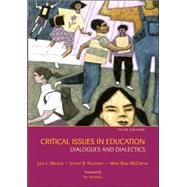| Foreword | xiii | ||||
|
|||||
| Preface | xvi | ||||
|
1 | (54) | |||
|
2 | (7) | |||
|
9 | (5) | |||
|
14 | (3) | |||
|
17 | (38) | |||
|
|||||
|
55 | (24) | |||
|
|||||
|
55 | (10) | |||
|
65 | (14) | |||
|
79 | (24) | |||
|
|||||
|
79 | (10) | |||
|
89 | (14) | |||
|
103 | (24) | |||
|
|||||
|
103 | (11) | |||
|
114 | (13) | |||
|
127 | (24) | |||
|
|||||
|
127 | (9) | |||
|
136 | (15) | |||
|
151 | (19) | |||
|
|||||
|
151 | (8) | |||
|
159 | (11) | |||
|
170 | (22) | |||
|
|||||
|
170 | (9) | |||
|
179 | (13) | |||
|
192 | (43) | |||
|
|||||
|
192 | (10) | |||
|
202 | (33) | |||
|
|||||
|
235 | (23) | |||
|
|||||
|
235 | (9) | |||
|
244 | (14) | |||
|
258 | (21) | |||
|
|||||
|
258 | (8) | |||
|
266 | (13) | |||
|
279 | (19) | |||
|
|||||
|
279 | (8) | |||
|
287 | (11) | |||
|
298 | (26) | |||
|
|||||
|
298 | (11) | |||
|
309 | (15) | |||
|
324 | (30) | |||
|
|||||
|
324 | (13) | |||
|
337 | (17) | |||
|
354 | (31) | |||
|
|||||
|
354 | (8) | |||
|
362 | (23) | |||
|
|||||
|
385 | (17) | |||
|
|||||
|
385 | (6) | |||
|
391 | (11) | |||
|
402 | (24) | |||
|
|||||
|
402 | (9) | |||
|
411 | (15) | |||
|
426 | (15) | |||
|
|||||
|
426 | (5) | |||
|
431 | (10) | |||
|
441 | (27) | |||
|
|||||
|
441 | (11) | |||
|
452 | (16) | |||
|
468 | ||||
|
|||||
|
468 | (7) | |||
|
475 | ||||
| Index | 1 |









